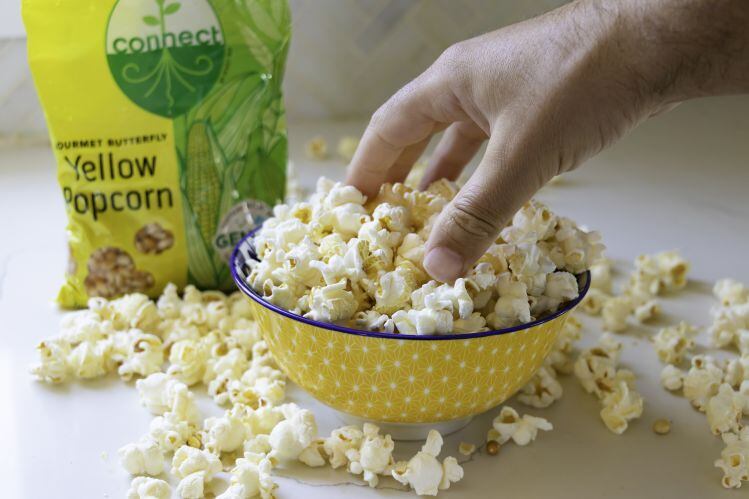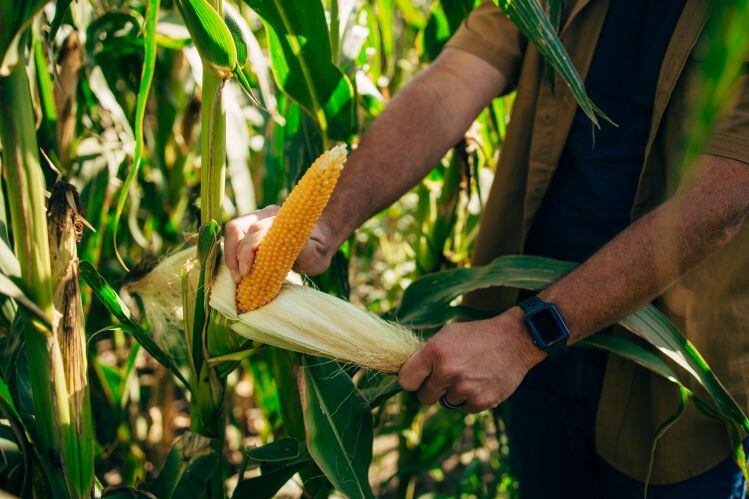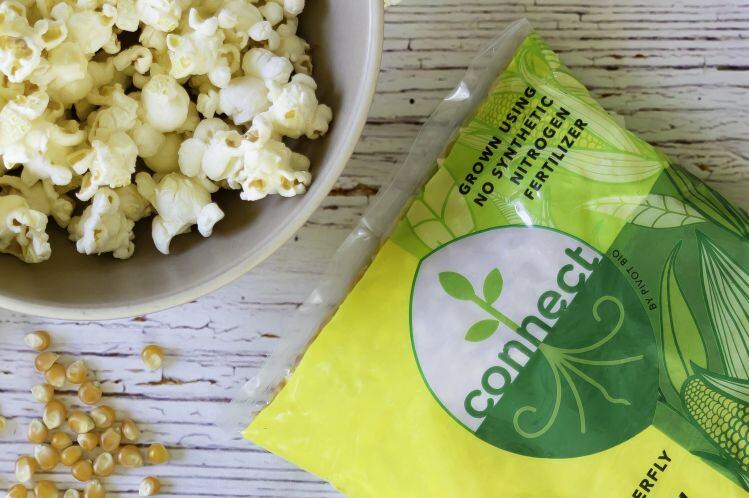Connect Popcorn - initially launching direct to consumer at connectsnacks.com - features the prominent claim, ‘Grown using no synthetic nitrogen fertilizer,’ while Pivot Bio is also in talks with a range of CPG companies interested in making similar claims on pack, Pivot Bio co-founder and CEO Karsten Temme told FoodNavigator-USA.
“The way we deliver nitrogen to crops is inherently inefficient and it is having a huge impact on the climate and water quality and part of what we are trying to do [by launching a consumer brand] is raise awareness, to tell that story and help foster connections between growers and consumers.
“We’ve seen a lot of excitement, and we're welcoming conversations [down the food supply chain].”
Synthetic nitrogen fertilizer accounts for about 5% of the country’s greenhouse gas emissions
While some consumers are becoming more aware of the environmental footprint of food production and packaging, many are likely unaware that synthetic nitrogen fertilizer accounts for about 5% of the country’s greenhouse gas emissions, claimed Temme, who has raised a cool $600m+ since 2014 as investors have recognized the potential of its game-changing technology.
Half of this footprint is from fertilizer production (making nitrogen fertilizer is very energy intensive), while the other half is from nitrogen loss (some fertilizer washes away into waterways or volatizes into the air), explained Temme, who said farmers that grow for Connect are paid a premium for their crops for their contribution toward cleaner air and water.
“70% of the air is nitrogen gas, it's two atoms of nitrogen bonded together but it's really difficult to break those bonds. So we can use this significant percentage of the global energy supply to make nitrogen fertilizer, or we can use a magical enzyme that a few bacteria know how to make [that breaks down nitrogen’s chemical bonds].”
‘The more synthetic nitrogen is used to increase food supply, the more farm soil degrades and jeopardizes the entire food system’
So how does it work?
While certain soil microbes (bacteria) have been breaking down atmospheric nitrogen and creating a useable form (ammonia) for plants to use as food for thousands of years by producing an enzyme that breaks down nitrogen’s chemical bonds, modern crops are typically grown with additional synthetic nitrogen fertilizer, said Temme.
This is because soil microbes’ inherent ability to produce these enzymes has been rendered dormant by a century of synthetic chemical fertilizer use, claimed Temme, who deploys both synthetic biology and more traditional breeding processes to retool the microbial DNA to produce the coveted enzymes consistently.
“The microbes that make that enzyme live everywhere, and there's a natural symbiosis between every plant on this planet and these microbes,” he said.
“But the crops that drive modern agriculture need more nitrogen than the microbes can provide as we've gotten so good at breeding crops to be productive, that we've outpaced this natural symbiosis and made up for that gap by inventing fertilizer.
“And once we started using synthetic nitrogen fertilizer, it served as a kind of signal to the microbes to stop making that enzyme, so we’ve become more and more dependent on synthetic nitrogen fertilizer.
“The more synthetic nitrogen is used to increase food supply, the more farm soil degrades and jeopardizes the entire food system.”
More efficient, more sustainable
By using Pivot Bio’s microbes, which are supplied to farmers as a liquid, farmers can also work more efficiently, he said.
“Today, fertilizer is big and bulky and weighs tons and tons, and so it requires huge equipment to apply it to a field. And because that's so big and heavy, you have to add fertilizer when the crop isn’t growing, which means that the fertilizer is sitting in the soil and snow and rain can wash it away or degrade it.
“Using our product means you can eliminate one of those times of driving equipment through the field and the nitrogen is not getting lost to the environment, all of it is ending up in the plant.”



